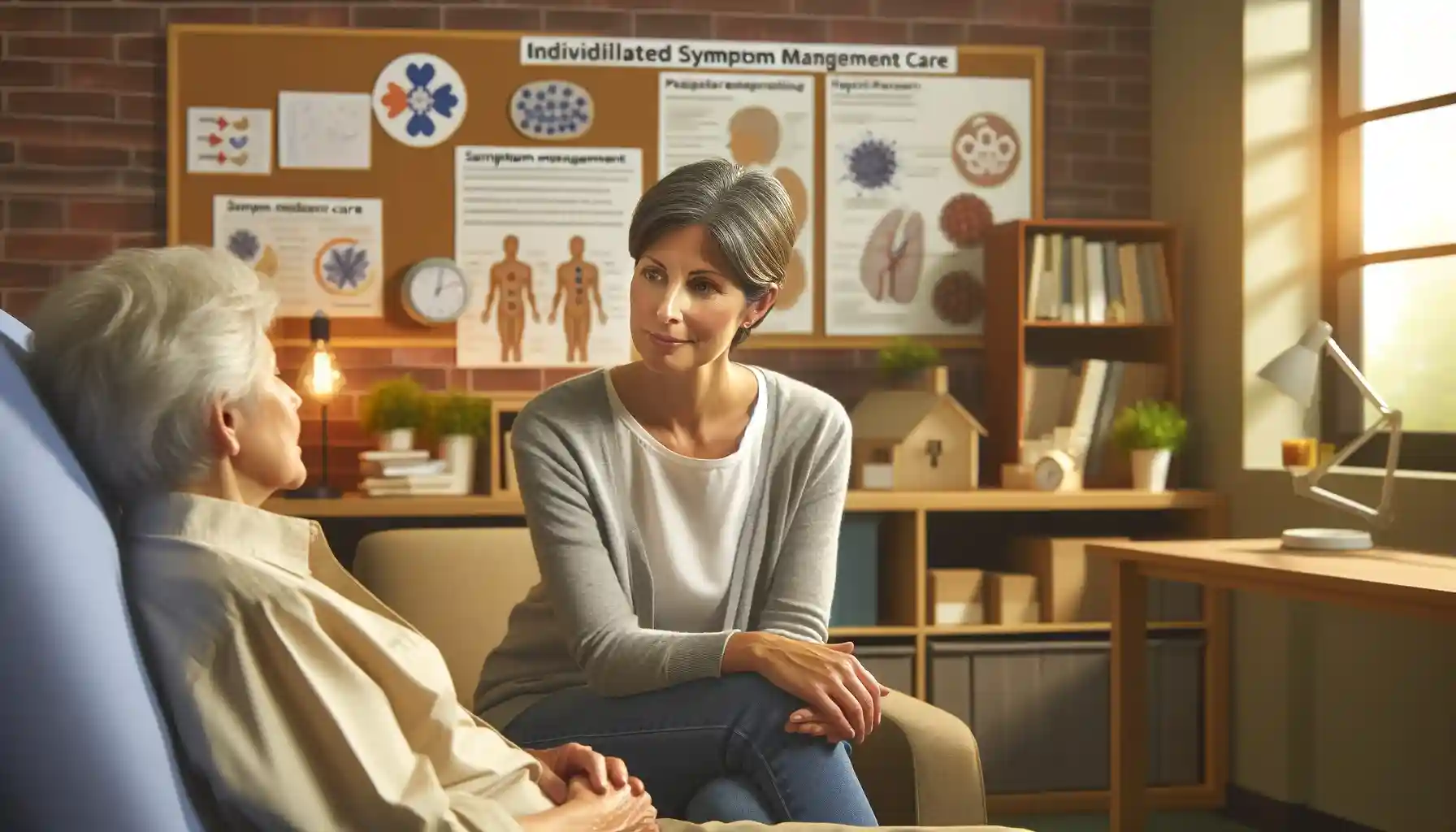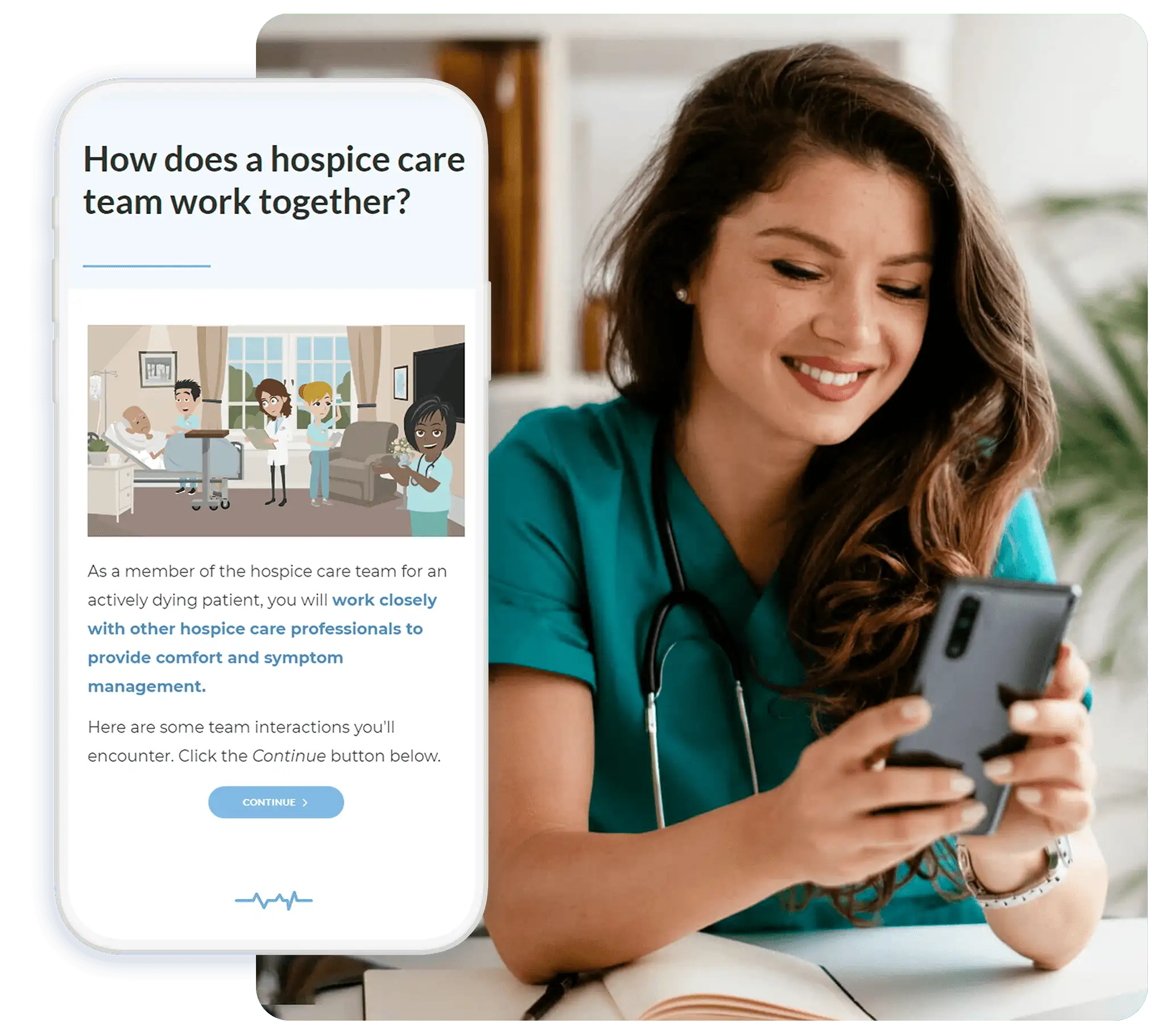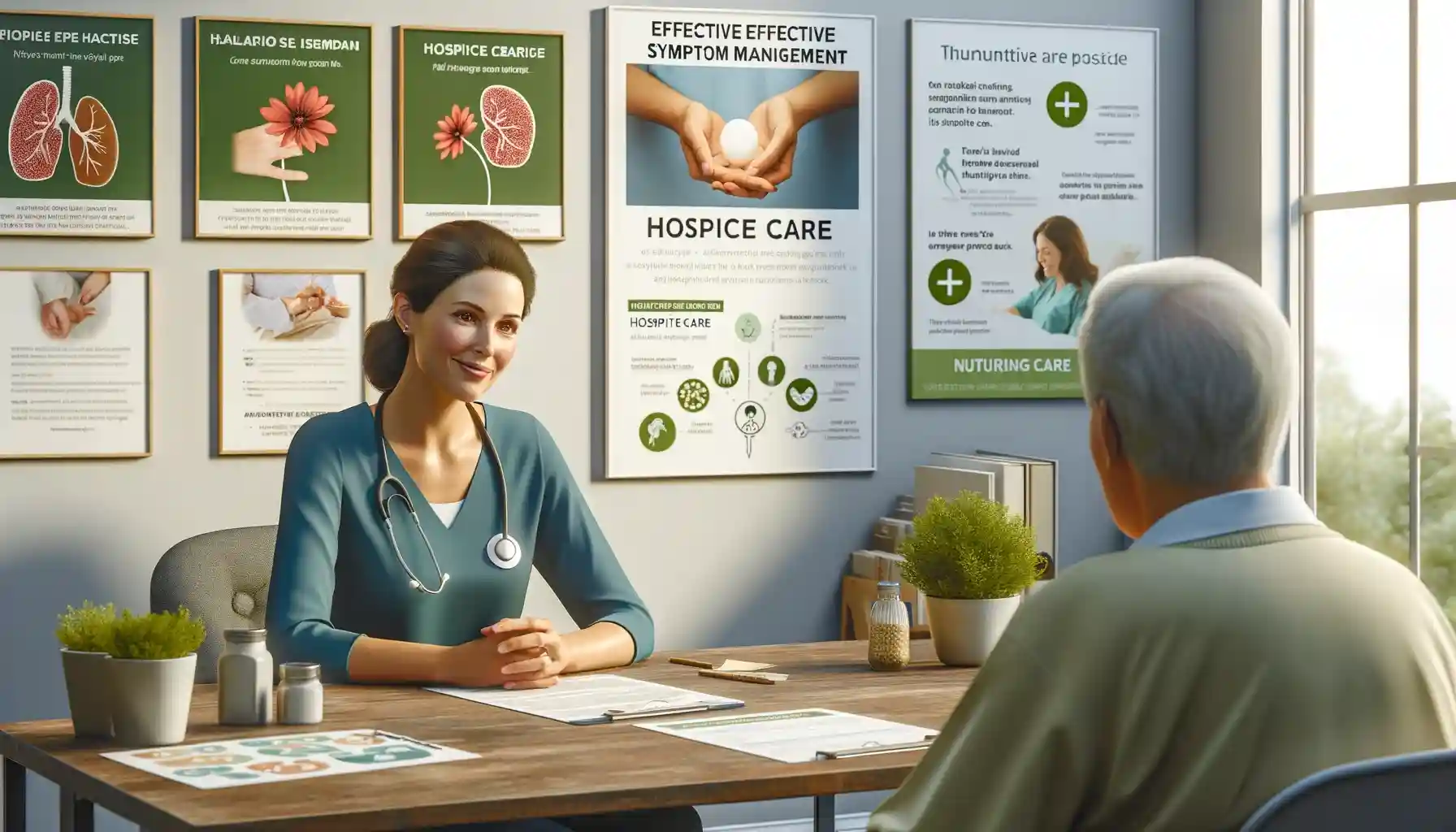Hospice Symptom Management During Impending Death
Impending Death and Hospice Symptom Management is a thorough investigation of the key elements of hospice care, with an emphasis on symptom management in a patient’s final hours and days. Important subjects covered include:
- Prognosis and common symptoms of end-of-life
- Medication management for comfort and symptom palliation
- Ethical considerations in end-of-life care
- Communication strategies with patients and families
Skills You’ll Learn
- Recognize End-of-Life Signs: Identify the clinical signs indicating impending death in patients.
- Treatment Options for Dying Patients: Understand and describe various treatment options for common symptoms during the end-of-life phase.
- Managing Pain and Discomfort: Learn effective pain management strategies to enhance patient comfort in their final days.
- Holistic Care Approaches: Gain insights into providing comprehensive care, considering both the physical and emotional needs of the dying.

Hospice Symptom Management During Impending Death Course Description
Hospice Care: A Compassionate Approach
Every moment counts when you’re tasked with caring for patients nearing the end of their life. Our course, “Hospice Symptom Management During Impending Death,” is tailored for healthcare professionals like you – nurses, physicians, pharmacists, and caregivers involved in hospice and palliative care.
Understanding the Dying Process
You’ll delve into the dying process, learning to identify the signs that death is near. You’ll explore various symptoms like restlessness, agitation, and the ‘death rattle,’ understanding their etiologies and effective management techniques.

CONTINUA LEARNING
Simplify Your Hospice Team’s Training and Skill Building
A complete online solution for your agency: more than 125 hospice courses, caregiver in-services, training plans, and more.
Managing Pain and Discomfort
Pain management is a cornerstone of hospice care. This course empowers you with knowledge about pain at the end of life, including management of pain in conditions like cancer and chronic obstructive pulmonary disease. You’ll learn about administering pain medications, doses of short-acting opiates, and non-pharmacological approaches to alleviate discomfort.

Ethical Considerations and Communication
You’ll also navigate the sensitive aspects of hospice care, such as discussing goals of care with patients and families, handling sensitive information, and providing emotional support. We’ll guide you through the ethical dilemmas often encountered in end-of-life care, equipping you with strategies to make informed decisions.
Practical Skills and Application
Beyond theory, this course emphasizes practical skills. You’ll learn how to provide oral care, manage physical symptoms, and use palliative sedation when necessary. Techniques like elevating the patient’s head, using a cloth on their forehead, or ensuring their comfort in their final days are all covered.
Course Duration and Accreditation
The course, structured with a post-test, offers 1.5 contact hours / CEUS. By the end of this course, you’ll have a deeper understanding of the complexities of hospice care and be equipped to provide compassionate, effective care to patients in their final moments.

How to Get Started with Hospice Symptom Management During Impending Death
Hospice Symptom Management During Impending Death is designed for healthcare professionals, including nurses, nurse aides, social workers, therapists, and nursing home administrators committed to providing empathetic and knowledgeable end-of-life care.
Hospice Symptom Management During Impending Death is part of a yearly subscription to Continua Learning. Continua Learning delivers over 300 hospice, home health, and home care training courses and in-services in a mobile solution for easy compliance and tracking it all from one place. Contact us to set up a demo for your agency today! Elevate your expertise. Enhance patient satisfaction.
Hospice Symptom Management During Impending Death Continuing Education
Hospice Symptom Management During Impending Death offers 1.5 CEUs for Nursing, Certified Nursing Assistants, Home Health Aides, and Hospice Aides. Continua Learning is an approved provider of CEUs from the following boards:
- Florida Board of Nursing
- Florida Board Of Occupational Therapy
- Florida Board Of Speech – Language Pathology And Audiology
- Florida Board Of Nursing – Certified Nursing Assistants
Course Reviewer
Kathleen Webster, BSN, RN, CRRN, brings nearly four decades of nursing experience to her role. Earning her BSN in 1984 and CRRN in 2012, she began her career in acute rehabilitation and later specialized in hospice and home health care for over 25 years.
A seasoned educator, Kathleen has authored numerous eLearning courses and led in-service training programs. As a former community care program director, she trained in-home aides and is committed to inspiring quality care and compassion in hospice and home care.
Frequently Asked Questions
What is the difference between hospice and palliative care?
Hospice care focuses on comfort and quality of life during the final phase, typically when life expectancy is six months or less. Palliative care, while also focusing on comfort, can be provided at any stage of a severe illness and alongside curative treatments.
How does this course address pain management at the end of life?
Our course provides detailed insights into managing severe pain in hospice patients. It covers pain medications, non-pharmacological approaches, and strategies for breakthrough pain, ensuring comprehensive pain relief.
Can this course help in understanding the emotional aspects of a dying person?
Yes, the course delves into the physical and emotional needs of patients nearing the end of their life. It guides you in managing total pain, including psychological, social, and spiritual pain and physical discomfort.
What are the common end-of-life symptoms covered in this course?
The course covers a range of common symptoms, such as breathlessness, restlessness, and agitation. It also discusses identifying and managing these symptoms to provide the best possible care in a patient’s final days.
Is this course suitable for family members and caregivers of hospice patients?
While primarily designed for hospice professionals, this course offers valuable insights for family members and caregivers. It helps them understand the dying process and how to support their loved ones effectively.
How does the course content ensure sensitivity towards sharing sensitive information?
The course emphasizes the importance of sensitive communication with patients and their families. It provides guidelines on securely and empathetically sharing information, respecting everyone involved’s privacy and emotional state.
What practical skills will I learn for treating pain in patients with advanced illnesses?
You will learn various practical skills, including administering appropriate doses of short-acting opiates, providing comfort measures like oral care, and using palliative sedation when necessary. These skills are crucial for treating pain in patients with advanced illnesses such as chronic obstructive pulmonary disease.

